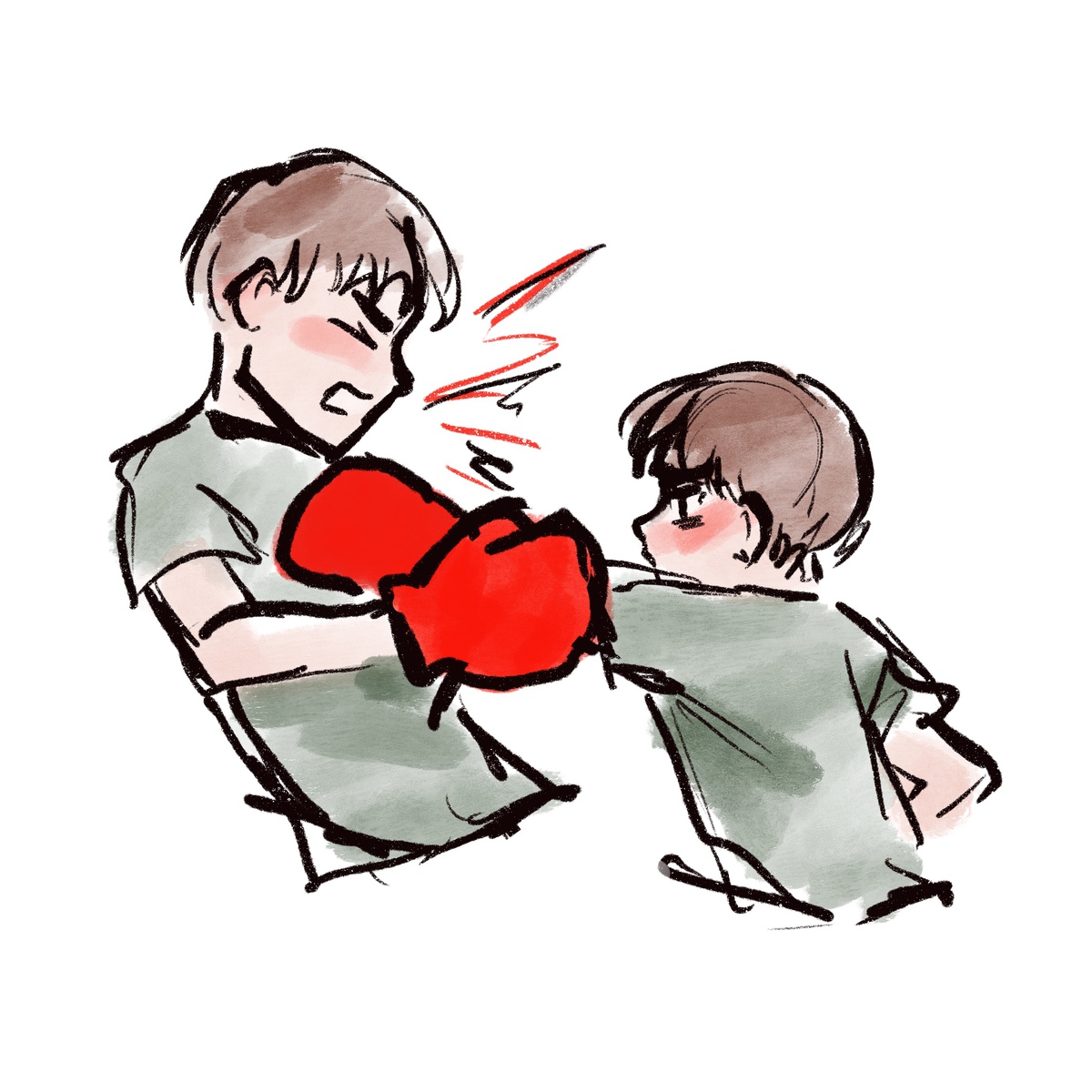
Ariane de Gennaro
The so-called Dishes Dilemma: my parents were out for the night, so we had ordered in Chinese food. It was delicious. But now, someone had to clean up.
Some brothers might settle it with rock-paper-scissors or volunteering or a rotation. Not us. Alex, then a stressed high-schooler, announced he would not be cleaning. I was four years younger and didn’t dare challenge him. That left me and Will, a mere three years my elder.
He looked at me and I looked at him. “Smackdown!” we said at the same time. And it was settled: we’d fight, and the loser would do the dishes. We retreated to our rooms to prepare walkout songs and change into goofy fighting garb. This wasn’t about violence; in retrospect, it wasn’t even really about the dishes. It was a performance with no audience.
After the ceremonial entrances, Alex — our referee for the night — had us shake hands. And then we duked it out. Despite the age disadvantage, I had a few inches and several pounds on Will. He, despite his sometimes goofy demeanor, was feisty, though. So, in a controversial but classic younger-sibling first move, I went right for the hair-pull. Will objected, and Alex pulled us apart to announce no hair-pulling.
We re-engaged, grappling like the untrained teenage boys we were. Eventually, he wrestled me to the ground. But I squirmed my way out and pinned him. As he shook me off, my head boinked into the wall and I immediately burst into tears.
The tone of the night shifted, as we tried to make sure our mom didn’t find out and get mad at us. Will ended up doing the dishes, just as I had planned all along.
Growing up as the youngest of three brothers, I found myself constantly engaging in these amateurish and playful forms of physical combat. In our narrow hallway that I barely fit in now, we played football, soccer, hockey, rugby and any other sport we could configure to at most three players and limited square footage. Violence in these contests was not only allowed, but encouraged.
At some point, the building superintendent who lived on the floor below us — maybe joking, maybe not — threatened to evict us on the grounds of his own noise complaint. It was a devastating day. We haven’t played hallway football since then.
I look back on those simpler days of yore as some of the highlights of my childhood. Yet these games almost always ended with me in tears due to injury of body or feelings. So why do I miss them?
First, I miss the intensity of that physical competition. Sure, I can play pickup basketball with my fellow Yale nerds, don’t get me wrong. But the competitive fire there just can’t compare. And when it does get heated, it gets too heated. I miss the moments with my brothers where we’d shift from violence to laughter in a split second with no real reason why.
Beyond the joy of violence — maybe that’s something for me to look into — I find myself reflecting on the theatricality. The violence was so unserious that we couldn’t even genuinely fight. Even when the punches were real, we more closely resembled WWE wrestlers or Yale students in “THST 200: Intro to Theatrical Violence” than any real fighters. It would be more accurate to describe the fighting as something we did together rather than against each other.
I feel compelled at this point to mention that we did lots of nonviolent things together like talk about our lives, play games and make jokes about our mom. But there was something that felt special about those fights that you can’t replicate without the semi-violence they entailed.
Both of my brothers have graduated from college and have adult jobs in the adult world. I’m twenty, and in theory, I am also sort of on my way to being an adult. My brothers and I call somewhat regularly, and when we’re all back home, we still play games and watch bad TV and throw around a ball together. But we haven’t physically fought in years now.
Alex could probably snap me in half, and I feel confident I could take down Will with or without hair-pulling. Even if the fights wouldn’t be close and we’re way too old for them, I still long for the tackling, the laughing, the next round of punches, the crying, the apology, the “I’m not accepting your fake apology! Say it like you mean it!” and the eventual forgiveness and jokes. But it’s in the past, a piece of childhood to reminisce on but never recreate.







